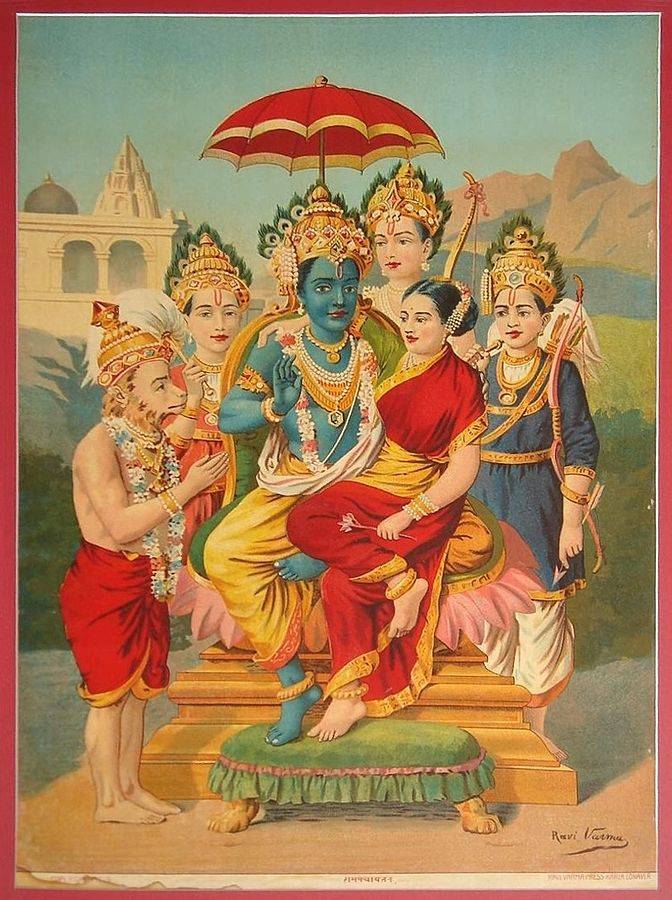“You cannot take ‘advantage’ of me”, Sita must’ve said to Ravan.
And not surprisingly at all, the Honourable Supreme Court of India feels strongly for the sentiment. As was seen on the 27th of October, 2015 when the division bench comprising of J.Gogoi and J.Agrawal observed that using images of Gods and Goddesses as a part of a logo/label would be “taking advantage of the Gods and Goddesses” which wouldn’t be permitted. The SC also ruled that names of holy or religious books could not be trademarked for any goods or services.
This decision is the climax of a story that began when a manufacturer of incense sticks in Patna (the Appellant) decided to get his brand name RAMAYAN trademarked, and one of his ex-dealers (the Respondent) in the same city opposed his application on the grounds that name of a religious book could not be trademarked under the provisions of the Trade Marks Act ,1999 (‘TMA’ for brevity), (the then Trade and Merchandise Marks Act, 1958). The interesting fact being that the Respondent himself had filed for trademark registration of his brand BADSHAH RAMAYAN, that was still pending. The conflict went through various stages of orders and appeals before the Appellant finally appealed to the Supreme Court against the order of the Intellectual Property Appellate Board dated 10.01.2005, obviously in favour of the Respondent.
The counsel for the Appellant essentially had the following arguments:
1. Extensive use, wide advertisement and excellent quality of the Appellant’s product have made his label distinctive and hence eligible to be trademarked.
2. Section 9(2) of the TMA prohibits the use of a trademark that hurts the religious susceptibilities of the people, not the name of a religious book itself.
The counsel then countered the evidence that the Appellate Board had based its decision on by pointing out that the Eighth Standing Committee Report on the Trade Marks Bill, 1993 merely observed that people should not ordinarily register any symbol relating to religious Gods, Goddesses, places of worship but did not expressly prohibit it. The precedents referred to by the Board, too, were shown to be erroneously interpreted. The counsel then stated that since the Respondent himself had applied for a similar trademark, he did not hold any authority to object to the use of the word RAMAYAN by anybody else. Besides, even if both the trademark applications were considered to be bona fide, the Appellant’s would still succeed because he was a prior user of the brand than the Respondent.
To this, the counsel on behalf of the Respondent simply said that the name of a religious book as it is, couldn’t become the subject matter of an individual’s monopoly. Besides, there was no evidence concerning the distinctiveness of the RAMAYAN mark. In fact, there were more than twenty other traders in Patna that used the mark, clearly making it public juris. The counsel also pointed out that the Respondent’s trademark application for BADSHAH RAMAYAN was fit for registration (as it did not use only the name of the holy book) and would be jeopardized, if the Appellant’s mark was registered.
The Court, after hearing both sides, referred to Section 9 of the TMA to clarify the plain text of the provision with regard to absolute grounds for refusal of registration of trademarks. It also observed that although the Standing Committee report might not be prohibitive or binding, it is understood that the government is expected to and will take appropriate action if required as per the suggestions. It also clarified that the exclusive use of the word RAMAYAN represents the title of the religious book by Maharishi Valmiki alone, whereas, RAMAYAN with a prefix or a suffix or a change in design or length of characters etc. would represent trademark-able brands. It also elaborated on the case law relied on by the counsel for the Respondent by saying that the underlying principle of trademark is, it making the good/service of the registered proprietor distinctive in the eyes of the public. But since more than 20 other traders in the same city also used RAMAYAN, this principle obviously fails.
Hence, the Appellant’s appeal stood dismissed and our holy names and symbols stand untouched.
Authored by Nuhar Bansal.
For any queries on Trademark law in India please contact the BananaIP Counsel’s Trademark Division at [email protected]. We will revert to you at the earliest.
Reference- here




0 Comments
Damayanti K
Thanks for the beautiful useful and updated information.
Damayanti K
Thanks for the beautiful, useful and updated information related to Trademarks.